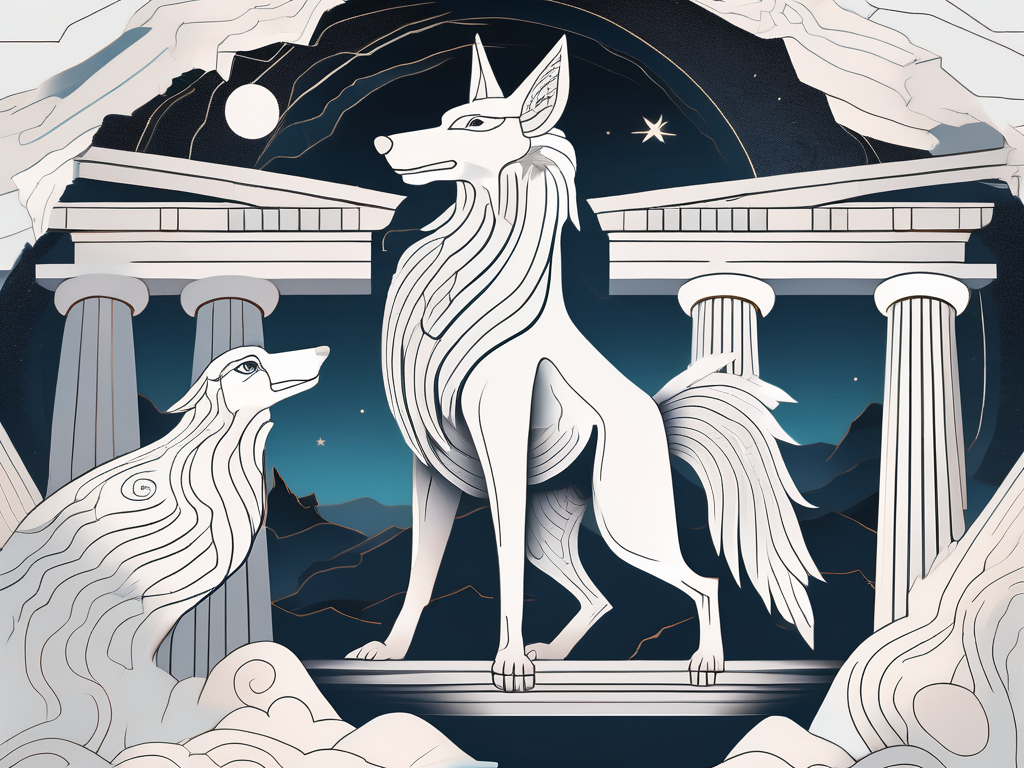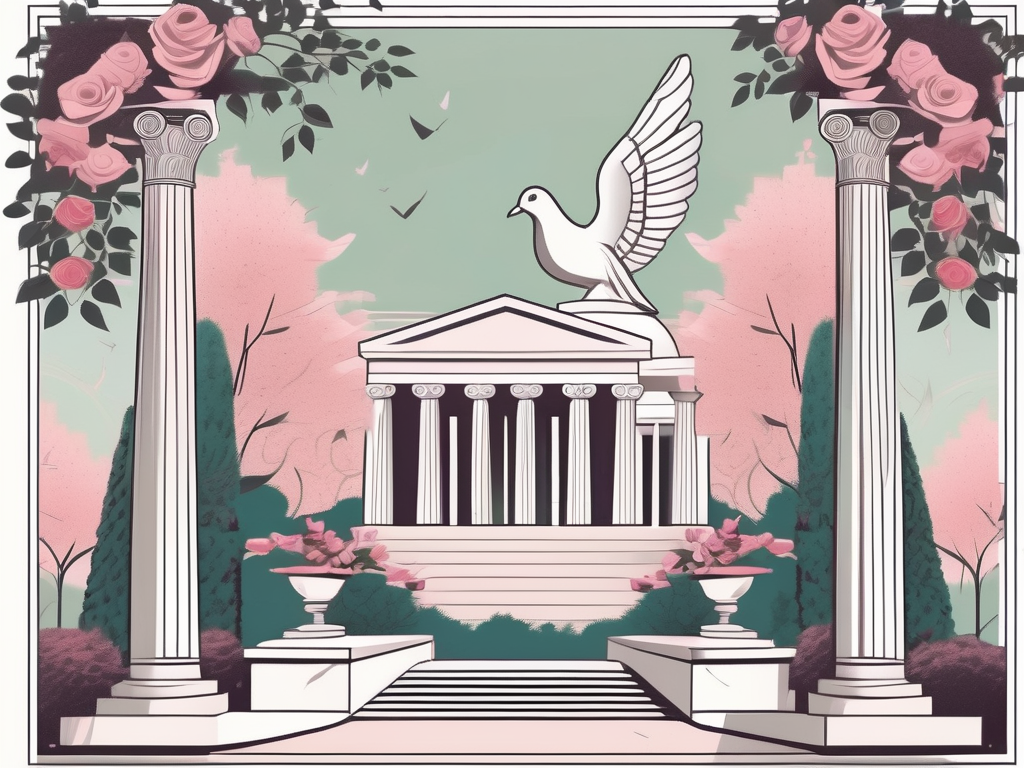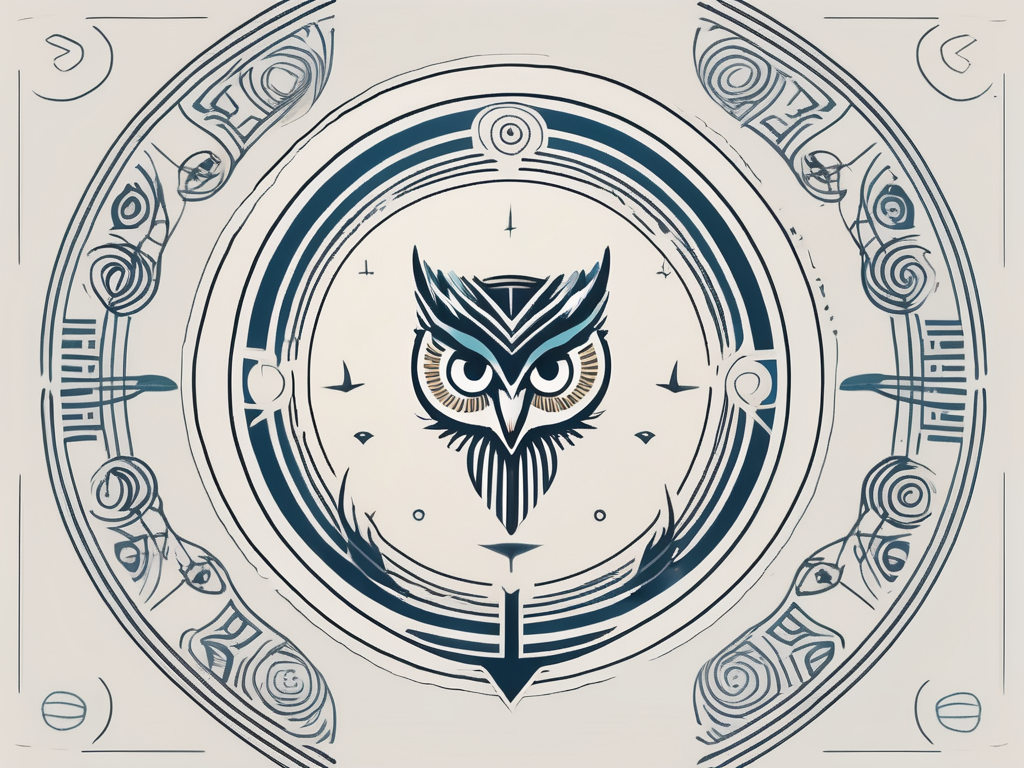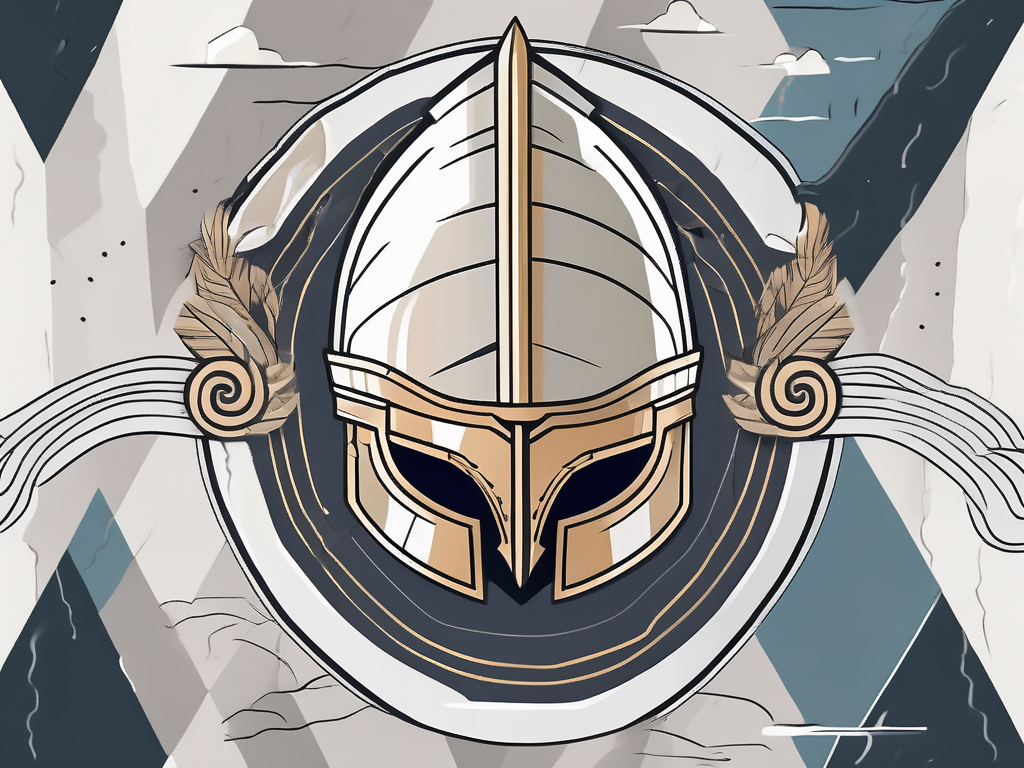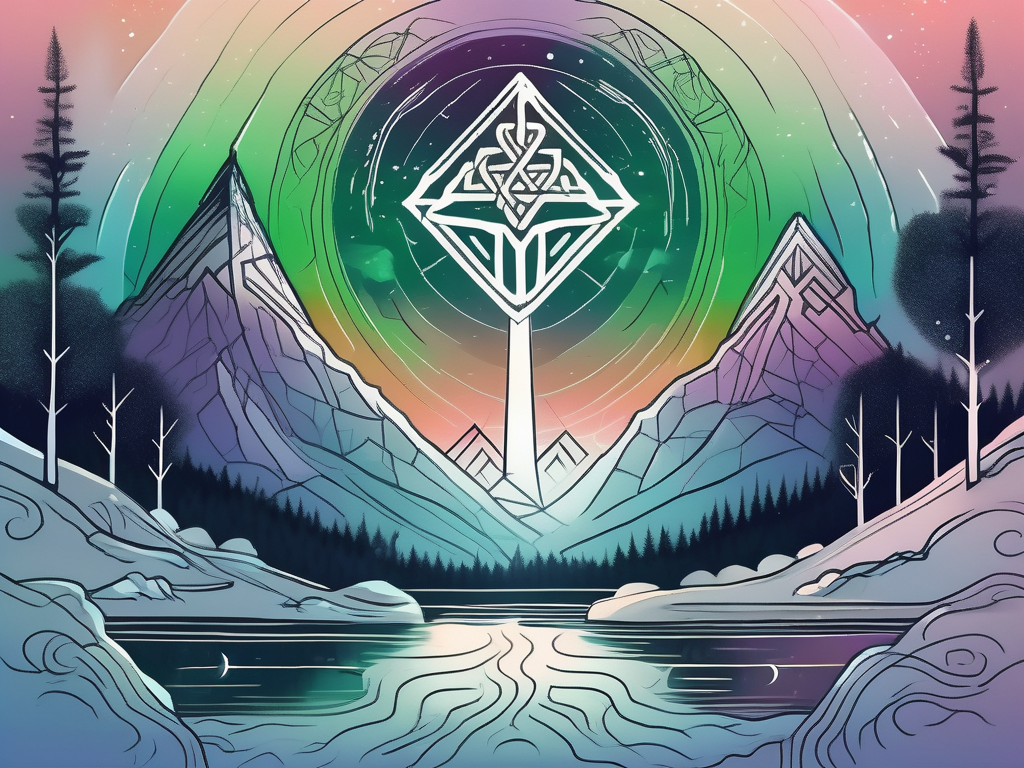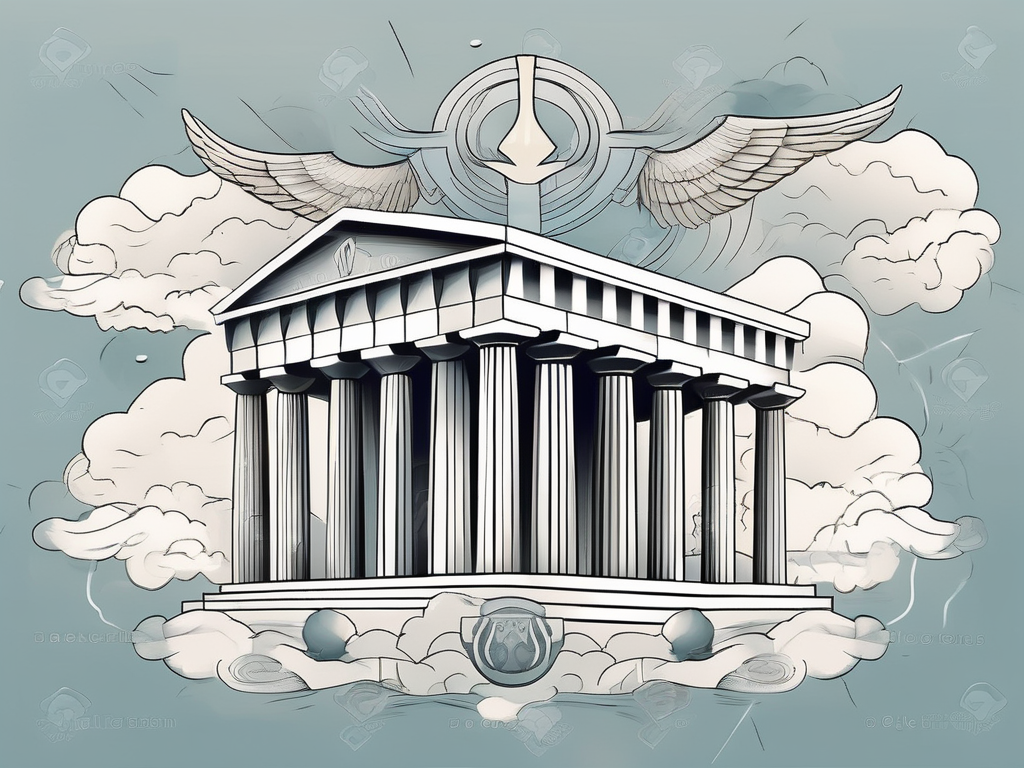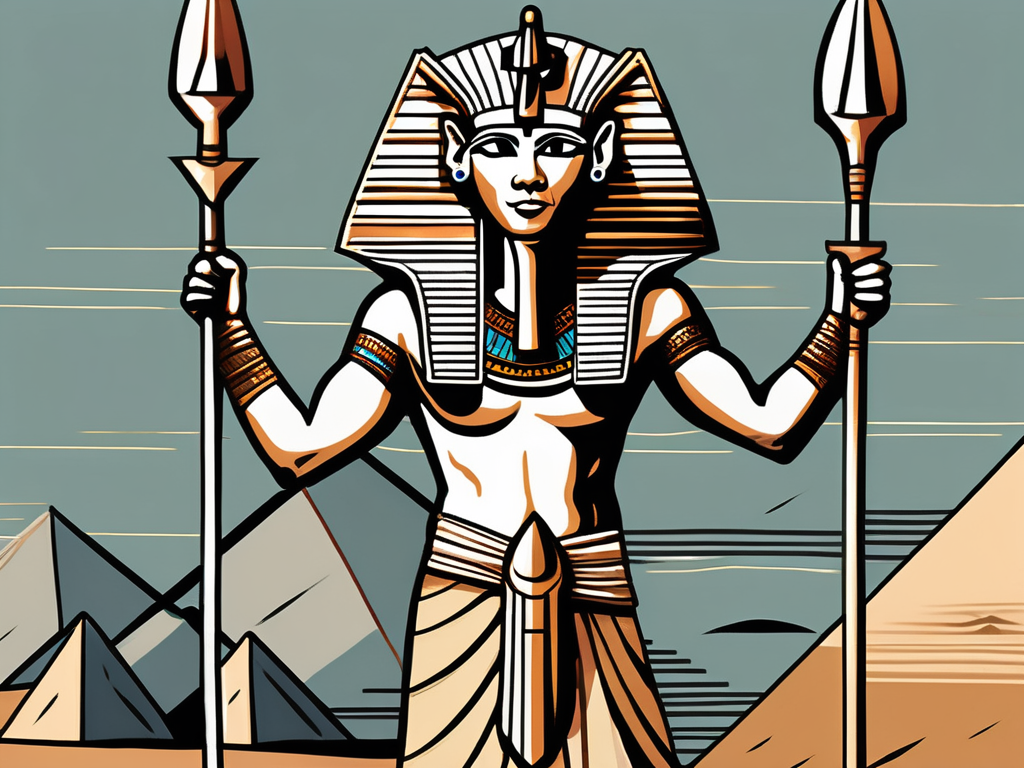Greek mythology is rich with fascinating gods and goddesses, each possessing their own unique stories and powers. Among these deities is Dinlas, a god whose enigmatic nature and mysterious role have captivated the curiosity of scholars and enthusiasts alike. In this article, we will delve into the origins, symbolism, worship, and modern influences surrounding Dinlas, shedding light on this lesser-known figure of Greek mythology.
Understanding the Origins of Dinlas
Exploring the origins of Dinlas opens up a world of intrigue and speculation. Delving into the ancient texts, we discover that Dinlas is the son of the goddess Aphrodite and the war god Ares. Born of this divine union, Dinlas possesses a unique lineage that sets him apart from his fellow Olympian gods.
But who exactly is Dinlas? What role does he play in the vast tapestry of Greek mythology? To answer these questions, we must delve deeper into the fascinating story of his birth and parentage.
The Birth and Parentage of Dinlas
The birth of Dinlas is an intriguing tale in itself. According to the ancient myths, Aphrodite bore him in secret, away from the prying eyes of the other gods. This clandestine birth adds an air of mystery to Dinlas’ character, making him even more enigmatic in the realm of Greek mythology.
Legend has it that Aphrodite, the goddess of love and beauty, and Ares, the god of war, conceived Dinlas during a forbidden tryst. Their passionate love affair, hidden from the watchful gaze of Mount Olympus, resulted in the birth of a god with a complex nature. It is said that Dinlas inherited his mother’s charm and allure, as well as his father’s fierce and relentless spirit.
As the child of two powerful deities, Dinlas was destined for greatness. However, his unique parentage also brought about challenges and conflicts. Being the offspring of Aphrodite and Ares, two gods with contrasting domains, Dinlas found himself torn between the realms of love and war. This internal struggle shaped his character and set him on a path of self-discovery.
Dinlas in Ancient Greek Literature
While Dinlas may not occupy the spotlight in ancient Greek literature, he does make occasional appearances, leaving traces of his presence. Sometimes depicted as a minor character in the myths surrounding other gods, Dinlas is often portrayed as a figure lurking in the shadows, adding an element of darkness and intrigue to the tales.
In some stories, Dinlas is described as a guardian of the underworld, entrusted with the task of ensuring the balance between life and death. His enigmatic nature and mysterious origins make him a perfect fit for this role, as he navigates the realms of both love and war, life and death.
Despite his lesser-known status, Dinlas holds a unique place in Greek mythology. His lineage, a blend of beauty and brutality, embodies the complexities of human nature. Through his story, we are reminded that even gods are not immune to the struggles and conflicts that define our mortal existence.
So, the next time you delve into the enchanting world of Greek mythology, remember to keep an eye out for Dinlas. Though he may be hidden in the shadows, his presence adds depth and intrigue to the timeless tales of the ancient gods.
The Symbolism and Powers of Dinlas
As we explore Dinlas’ symbolism and powers, we uncover a multifaceted deity with varying facets of influence.
Dinlas, the ancient Greek god, is a figure shrouded in mystery and intrigue. His enigmatic nature has captivated the imaginations of scholars and worshippers alike for centuries. Let us delve deeper into the realms of Dinlas, unraveling the layers of symbolism and powers that define this enigmatic deity.
Dinlas as the Guardian of Herds
One of Dinlas’ prominent roles is that of the guardian of herds, particularly sheep and goats. In this role, he embodies the protectiveness and vigilance necessary to safeguard these valuable resources. His influence extends beyond mere physical protection, also encompassing the areas of fertility and abundance vital to the well-being of the community.
Picture a vast pastoral landscape, where flocks of sheep graze peacefully under the watchful gaze of Dinlas. His presence brings a sense of security and harmony to these herds, ensuring their safety from predators and natural calamities. But his guardianship goes beyond the physical realm; Dinlas also bestows his blessings upon the fertility of the land, ensuring an abundant yield for the community.
Legend has it that Dinlas possesses an innate ability to communicate with animals, forging a deep bond between himself and the creatures under his protection. This connection allows him to understand their needs and desires, fostering a harmonious relationship between humans and the animal kingdom.
The Connection Between Dinlas and Darkness
Another intriguing aspect of Dinlas’ nature is his association with darkness. Often depicted as a deity of the night, Dinlas holds sway over the nocturnal realm. This connection to darkness symbolizes the hidden depths and unseen aspects of life, reminding us of the importance of balance between light and shadow.
When the sun sets and the world is cloaked in darkness, Dinlas emerges from the shadows, his presence felt by those who seek solace in the night. He is the guardian of secrets, the keeper of hidden knowledge that can only be accessed under the cover of darkness. In this role, Dinlas serves as a guide, leading seekers of wisdom through the labyrinthine paths of the unknown.
But darkness does not solely represent the mysterious and the unknown. It is also a symbol of introspection and self-discovery. Dinlas, in his association with darkness, encourages individuals to delve deep within themselves, to confront their fears and embrace their hidden potential. Like the moon shining brightly in the night sky, Dinlas illuminates the path to self-realization and personal growth.
As we continue to explore the symbolism and powers of Dinlas, we uncover a deity whose influence extends far beyond the realms of herds and darkness. His multifaceted nature invites us to contemplate the intricate tapestry of life, reminding us of the interconnectedness of all things and the importance of embracing both the light and the shadow.
Dinlas and the Pantheon of Greek Gods
Although Dinlas may not be a widely recognized deity, his interactions with other gods offer insights into his place within the divine hierarchy.
Dinlas, the son of Aphrodite and Ares, may not be as well-known as some of the other gods in the Greek pantheon, but his familial ties to these influential figures connect him to the heart of Greek mythology. Aphrodite, the goddess of love and beauty, and Ares, the god of war, are both prominent and powerful deities in their own right. Dinlas’ relationship with them hints at a more intricate interplay within the pantheon than first meets the eye.
While the interactions between Dinlas and other gods are not extensively documented, it is believed that he had a close bond with his mother Aphrodite. As the goddess of love, Aphrodite was known for her many romantic liaisons, and it is said that Dinlas inherited his mother’s charm and charisma. Some stories even suggest that Dinlas had a hand in orchestrating some of Aphrodite’s most famous love affairs, acting as a matchmaker of sorts.
On the other hand, Dinlas’ relationship with his father Ares was more complex. Ares, the god of war, was known for his fierce and aggressive nature. It is said that Dinlas inherited his father’s strength and courage, making him a formidable force in his own right. However, unlike Ares, Dinlas was not driven by a thirst for battle and conquest. Instead, he used his abilities to protect and guide others.
Dinlas’ Role in the Divine Hierarchy
As a lesser-known deity, Dinlas’ precise role within the divine hierarchy remains open to interpretation. Some propose that his role as a guardian deity and his association with darkness suggests a role as a guide or protector in the spiritual realm. In this interpretation, Dinlas is seen as a deity who watches over souls as they navigate the afterlife, ensuring their safe passage to the realm of the gods.
Others view Dinlas as more closely aligned with the earthly realm. In this interpretation, he is seen as a deity who aids farmers and shepherds in their endeavors. As the god of darkness, Dinlas is believed to have the power to bring about fertile soil and bountiful harvests. Farmers would often offer prayers and sacrifices to Dinlas, seeking his favor and protection for their crops and livestock.
Despite his lesser-known status, Dinlas’ unique familial ties and his potential roles within the divine hierarchy make him a fascinating figure in Greek mythology. His interactions with other gods and his potential influence over both the spiritual and earthly realms add depth and complexity to the pantheon of Greek gods.
The Worship and Cult of Dinlas
The worship and cult surrounding Dinlas offer further insight into his significance within ancient Greek society.
Ancient Rituals and Practices
While there is limited information regarding the specific rituals and practices associated with worshiping Dinlas, we can speculate that offerings and prayers were likely made to seek his protection and guidance. These rituals would have reinforced the connection between the divine and mortal worlds, fostering a sense of communal reliance upon Dinlas’ support.
Temples and Sacred Sites of Dinlas
Though no grand temples dedicated solely to Dinlas have been discovered, it is believed that smaller shrines and sacred sites dedicated to him existed in the ancient world. These sites would have acted as focal points for worship, allowing devotees to honor and seek the blessings of this enigmatic deity.
The Influence of Dinlas in Modern Culture
While the worship of Dinlas has waned over the centuries, his presence continues to ripple through modern culture and art.
Dinlas in Literature and Art
Although Dinlas may not be a well-known figure in popular culture, he has found his place in various works of literature and art. Writers and artists have drawn upon his mysterious nature to create characters and pieces that embody the enigmatic qualities associated with this lesser-known god.
The Modern Interpretation of Dinlas
In contemporary times, the interpretation of Dinlas has evolved, embracing new perspectives and reinventions. Some interpret him as a symbol of independence and self-reliance, while others view him as a deity of the subconscious, guiding individuals through the hidden realms of their inner selves.
In conclusion, Dinlas, the enigmatic Greek god, remains a captivating figure in the realm of mythology. From his mysterious birth to his association with darkness and his guardianship of herds, Dinlas offers us glimpses into a fascinating world rich in symbolism and power. Although his worship may have diminished over time, his influence continues to permeate modern culture, reminding us of the enduring allure and enigmatic nature of Greek mythology.
